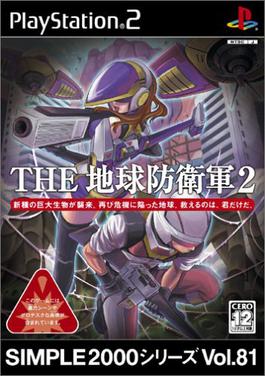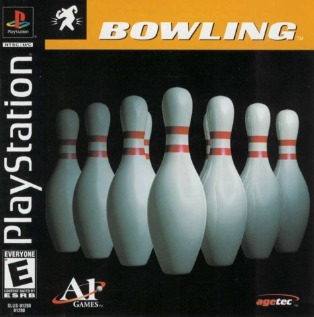Jaleco Ltd. was a corporate brand name that was used by two previously connected video game developers and publishers based in Japan. The original Jaleco company was founded in 1974 as Japan Leisure Company, founded by Yoshiaki Kanazawa, before being renamed to simply Jaleco in the early 1980s. This company was later acquired in 2000 by PCCW, who rebranded it as their Japanese game division, PCCW Japan, before reverting it to Jaleco in 2002. In 2006, Jaleco became independent from PCCW and renamed to Jaleco Holding, having their video game operations spun off into a new company, also called Jaleco. This new spin-off company was sold to mobile developer Game Yarou in 2009, with Jaleco Holding renaming itself to Encom Holdings shortly after.

Tamsoft Corporation is a Japanese video game developer, founded on 26 June 1992. Its current president, Toshiaki Ōta, previously worked at Toaplan as one of the six original team members and head of software development.

The Simple series is a line of budget-priced video games published by Japanese company D3 Publisher, a subsidiary of Bandai Namco Entertainment. Games in the series have been developed by several different companies, including Sandlot, Success, Irem, and Taito. It was introduced in 1998 for the PlayStation, and has been released for platforms such as the PlayStation 2, Nintendo DS, and mobile phones. The number in a series name indicates the price point of the games in the series; for instance, a "Simple 2000" series game would cost 2000 yen.
Kaneko Seisakusho (金子製作所), stylized as KANE<O, also referred to as Kaneko Co. Ltd. (カネコ株式会社), was a Japanese video game publisher founded in Suginami, Tokyo, Japan, by Hiroshi Kaneko. It published a number of games both under its brand and other companies, such as Air Buster, Nexzr, Shogun Warriors, DJ Boy, Guts'n, and the Gals Panic series.

Strikers 1945 II (ストライカーズ1945II) is a vertically-scrolling shoot 'em up game developed and originally published by Psikyo in 1997 for the arcades as a follow-up to Strikers 1945. This game was also ported by Kuusou Kagaku to the PlayStation and Sega Saturn for Psikyo and re-released by Success in 2000. Agetec released Strikers 1945 II for the PlayStation in North America under the title Strikers 1945 in 2001, and Midas Games released it in Europe as a budget title in 2003. The game was also included in Psikyo Shooting Collection Vol. 1: Strikers 1945 I&II by Taito for PlayStation 2, later was released as a downloadable title for PlayStation Network by GungHo Online Entertainment, and finally for Android and iOS by Mobirix. Also, after S&C Entertainment developed another version, they released it on Google Play, with the plane fire button removed, making it autofire and only tap the bomb and charge icons.

Taxi Rider, known as The Taxi: Untenshu ha Kimida, is a video game for the PlayStation 2 developed by Tamsoft. It was published in Japan by D3 Publisher as volume 48 of the Simple 2000 series, and in Europe by 505 GameStreet.

505 Games S.p.A. is an Italian video game publisher based in Milan. It was founded in 2006 as a subsidiary of Milan-based Digital Bros.

SETA Corporation was a Japanese computer gaming company, founded on October 1, 1985 and dissolved on February 9, 2009. SETA was headquartered in Kōtō, Tokyo, with a branch in Las Vegas, Nevada.
Warashi Inc. was a small Japanese company who develops video games for arcade, home console, and mobile platforms, specializes in Mahjong and shoot 'em up titles. It is known for the Shienryu series of games and for releasing one of the final Dreamcast games in early 2007.
Success Corporation is a Japanese video game and online game developer and publisher, based in Shinagawa, Tokyo, and founded on 7 June 1978. They are best known for their Cotton series of shooter games, Zoo Keeper and others.

Steve Fawkner is an Australian video game designer, programmer, and composer. He created the Warlords game series, first released in 1989, and the Puzzle Quest series which began in 2007. He has been regarded as one of the worlds most prolific and talented game designers.
Battle Gear (バトル・ギア), previously known as Side by Side (サイド・バイ・サイド), is a series of racing video games developed and published by Taito, first released in arcades with Side by Side in 1996. The series was later released for various home consoles, such as the PlayStation and PlayStation 2.
HuneX is a video game developer formed as a partnership between NEC Home Electronics, Ltd. and Human in 1992. HuneX mainly produces Bishōjo games and Otome games.
Nihon Bussan Co. Ltd. was a Japanese video game developer and publisher headquartered in Kita, Osaka. In the past they had also manufactured and sold yachts.
NESiCAxLive is a digital distribution system for arcade video games made by Taito. It is similar to the SEGA ALL.Net game distribution system. Taito uses NESiCAxLive to distribute not only its own games, but also allows other companies to use it as a publication platform. On its introduction SNK, Cave, and Arc System Works had agreed to distribute games on NESiCAxLive. Currently, 8 games are operated as alone running titles and 29 titles as downloadable titles on candy cabinets.
Affect Co., Ltd. was a video game development company that was active in that industry from 1990 to 2008, primarily releasing games in Japan through other publishers. One of the first products developed by the company was a highly successful baseball simulator, Nolan Ryan's Baseball. After 2008, Affect transitioned to producing web applications.

Racing, known in Japan as Simple 1500 Series Vol. 13: The Race, and in Europe as Pro Racer, is a racing game developed by Tamsoft and published by Culture Publishers in 1999, A1 Games in 2000, and Midas Interactive Entertainment in 2003, all for PlayStation.

Bowling, known in Japan as Simple 1500 Series Vol. 18: The Bowling, is a sports video game developed by Tamsoft and published by D3 Publisher in 1999, and by Agetec in 2001, both for the PlayStation.








